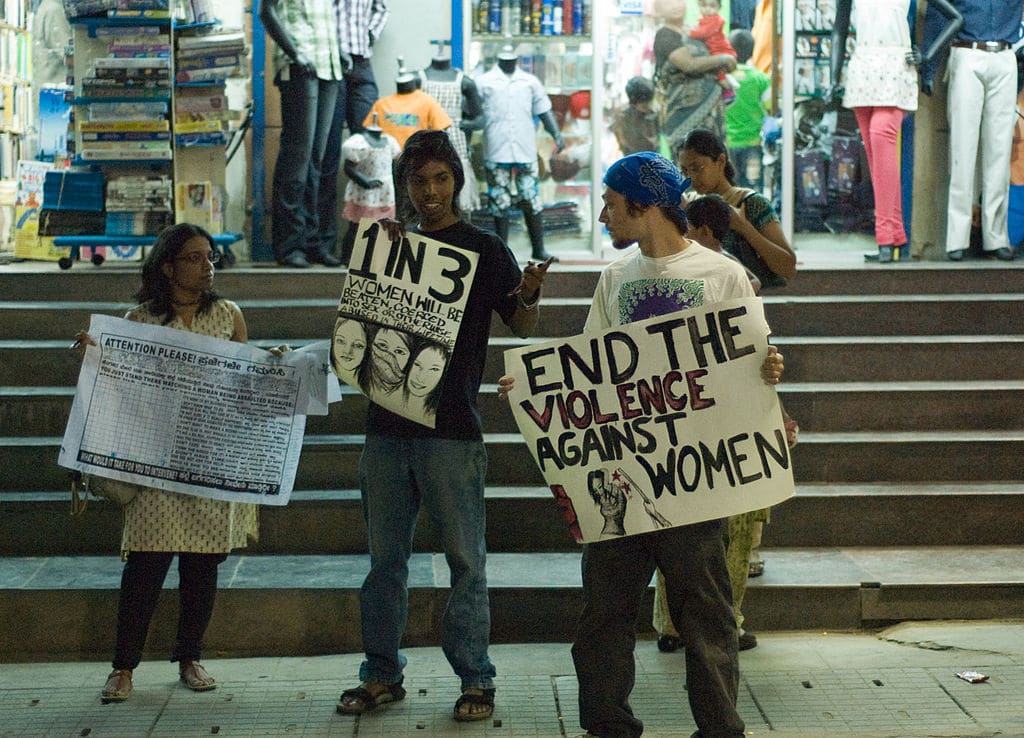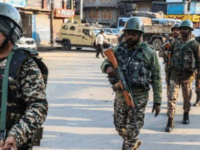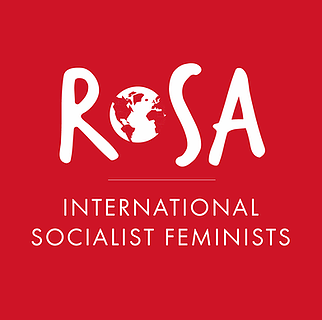The Rising Tide of Domestic Violence Against Women

The free-market has failed to cater to the basic needs of women and now with the rise of right-wing authoritarianism they are being condemned to even greater oppression.
ndia — a land of cultures that date back millennium, where women are worshipped in the form of goddesses, yet when violence against women occurs every voice for justice is pushed into a valley of silence. Women in India have been at the forefront of every political movement there including the Independence Movement yet despite living under the “system of opportunity” capitalism has restricted their average wage to only 75% of that of men. The free-market has failed to cater to the basic needs of women and now with the rise of right-wing authoritarianism they are being condemned to even greater oppression.
Hathras rape case
It is shameful that even at the height of a global pandemic when everyone is practicing social distancing, women in India remain unsafe. On the 14th of September 2020 a lower caste Dalit woman was brutally gang-raped by four upper caste men in the field of Hathras in the Uttar Pradesh (UP) state of India.
After being raped the victim was dragged by a long cloth wrapped around her neck severely damaging her spinal cord in the process. Her tongue was cut off and the assailants attempted to strangle her. Hearing her cries for help, her mother, working in a nearby field, arrived to find her daughter in a terrible condition. The four men fled the scene. The victim was first admitted to Jawaharlal Nehru medical college and hospital at nearby Aligarh and was later shifted to Safdarjung hospital in Delhi where she died two weeks later.
The police registered a complaint four days after the event and prior to the victim’s death recorded her statement three times where she said she was raped and attempted to resist. After her death the UP Police, under orders from the state government under the right wing conservative BJP, cremated the body of the victim at 2:30 AM, which is against Hindu customs where the body of the deceased cannot be cremated past sunset. This was done against the wishes of the family and no member of the victim’s family was present at the site of cremation. The hasty cremation of the victim’s body was clearly an effort to get rid of evidence against the four upper caste men. An attempt was also made to silence potential witnesses by compensating the victim’s family with a sum of 35000 USD, a house for the victims family and a government job for any family member of the victim.
The four accused men are now in jail with the victims family awaiting justice for their daughter. Several right wing/far right groups came out in support of the 4 accused upper caste men. A former BJP member of the state legislature led a protest claiming the accused men were innocent and even went on to ask “why are these women found only in sugarcane and millet field, bushes, gutters and forests ; why are they not found in rice or wheat fields” in a desperate attempt to deflect blame.
The leftwing news agency The Wire reported that the UP government hired a PR firm. On behalf of the state government this firm sent out a press release stating that the teenage victim was not raped. All this was done by the BJP because it feared that the incident could corrode their Upper Caste voter base and to deny justice to the victim on caste lines. Such targeted violence against women of poorer and marginalized sections of the society is a reactionary disease that is deeply rooted in Indian society.
Acts of violence against women
Almost every religion in India follows the system of dowry where the family of the bride are supposed to provide wealth in the form of land, money, house, vehicles etc to the grooms family as per their demand, without which the bride faces huge amounts of discrimination after the marriage. In several instances women have been set on fire (often called bride-burning) and the event is depicted as a suicide or accident related to a gas cooker. In common terms it is a bourgeois practice where innocent women are used as a means to accumulate wealth. Despite the act of dowry being illegal in India, many places still practice it and despite several attempts by progressive activists to challenge it, the number of women victimised by it is on the rise.
In several instances women have been killed by their own family because they are alleged to have brought dishonour and shame by dating or marrying against caste lines. There is record of several instances where even victims of sexual abuse are killed for the sake of protecting the family name. The right-wing, conservative and wealthier sections of society lay claim to these murders and often display it as a case of pride.
Witchcraft trials and murders are another human right violation and crime against humanity which targets women from the lower castes, poorer sections of society and women who have had miscarriages during pregnancies. Such practices sew toxic division amongst the masses. It is astounding that in a country considered one of the fastest growing economies in the world such medieval customs remain, which sees coservative factions consciously target the poor.
On top of these backward practices the BJP central government also takes measures that systematically disadvantage women. They recently introduced a tax reform to solely benefit the multi-billionaire corporations, termed the Goods and Services Tax (GST). The new tax system made a tax on condoms nearly free whereas the tax on menstrual pads was significantly higher, raising the price and making it unaffordable to poor women especially in rural areas of India. This puts their menstrual health at a significant risk and just one example of the callous disregard of women’s health and wellbeing under capitalism.
Capitalism to blame
As evident under the capitalist economic system and right-wing government, women, especially those from the working class and the poor and marginalized sections of society, are systematically oppressed and their rights ignored. The social stigma in such societies puts women at a very unfair position where progress is near impossible.
The only solution is to build an organized mass women’s movement involving the working class and youth to end this unfair system and challenge misogynistic ideas and practices. Mass protests like after the 2012 Delhi rape case show the potential. Such movements are necessary to raise awareness and bring some form of justice to the victims of violence. The Rosa Campaign run by International Socialist Alternative defends a socialist feminist position: our struggle needs to be based on the working class and aimed at building a movement to fight for a socialist society that ends all forms of oppression.





